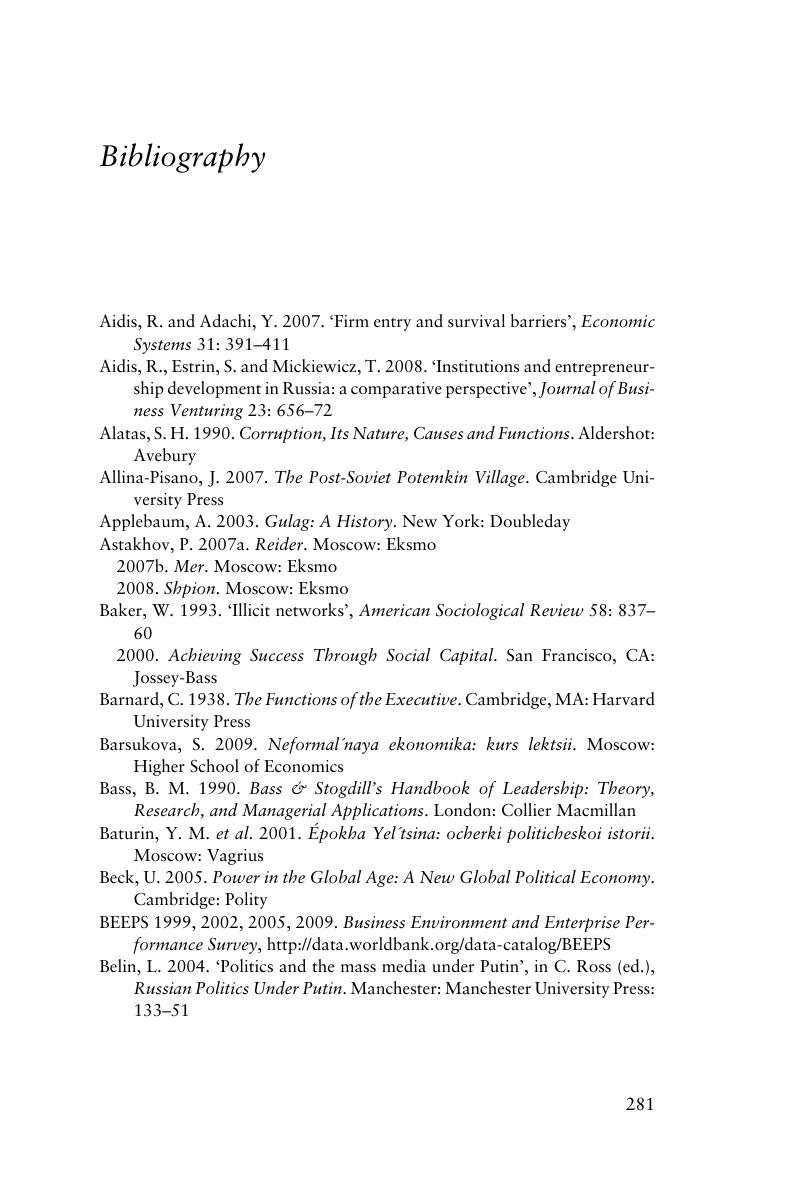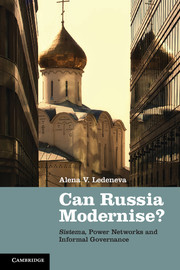Book contents
- Frontmatter
- Contents
- List of figures
- List of tables
- List of boxes
- Acknowledgements
- List of abbreviations and acronyms
- Introduction: modernising sistema
- 1 What is sistema?
- 2 Putin's sistema: svoi on top
- 3 The inner workings of sistema: from blat to otkat
- 4 Sistema's material culture: from vertushka to Vertu
- 5 ‘Telephone justice’ in the global age: from commands to signals
- 6 ‘Werewolves in epaulets’: from doublethink to doubledeed
- 7 From dealership to leadership: sistema and informal governance
- Conclusion
- Appendix 1 Survey questions
- Appendix 2 Interview questions
- Appendix 3 List of interviews
- Glossary
- Bibliography
- Index
- References
Bibliography
Published online by Cambridge University Press: 05 February 2013
- Frontmatter
- Contents
- List of figures
- List of tables
- List of boxes
- Acknowledgements
- List of abbreviations and acronyms
- Introduction: modernising sistema
- 1 What is sistema?
- 2 Putin's sistema: svoi on top
- 3 The inner workings of sistema: from blat to otkat
- 4 Sistema's material culture: from vertushka to Vertu
- 5 ‘Telephone justice’ in the global age: from commands to signals
- 6 ‘Werewolves in epaulets’: from doublethink to doubledeed
- 7 From dealership to leadership: sistema and informal governance
- Conclusion
- Appendix 1 Survey questions
- Appendix 2 Interview questions
- Appendix 3 List of interviews
- Glossary
- Bibliography
- Index
- References
Summary

- Type
- Chapter
- Information
- Can Russia Modernise?Sistema, Power Networks and Informal Governance, pp. 281 - 304Publisher: Cambridge University PressPrint publication year: 2013
References
- 1
- Cited by



